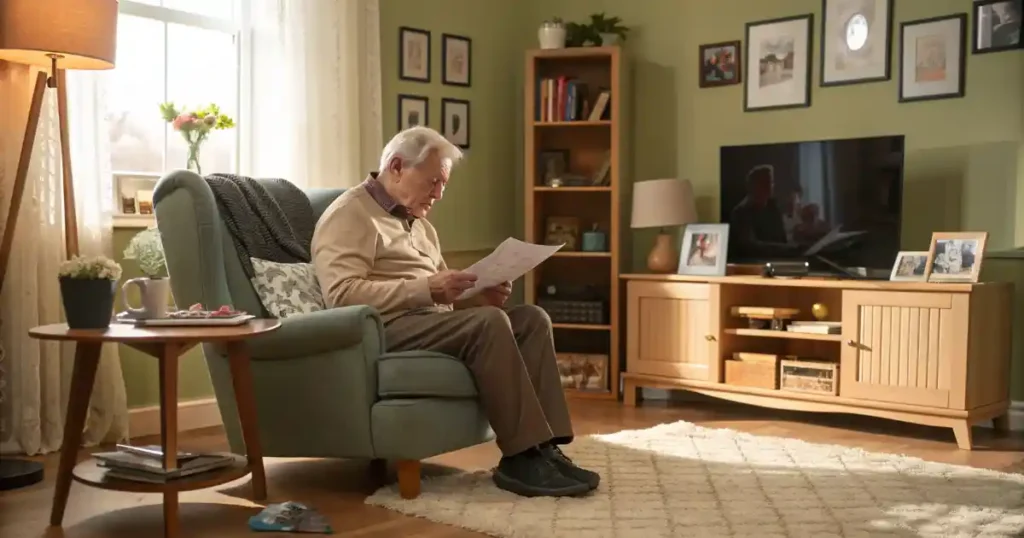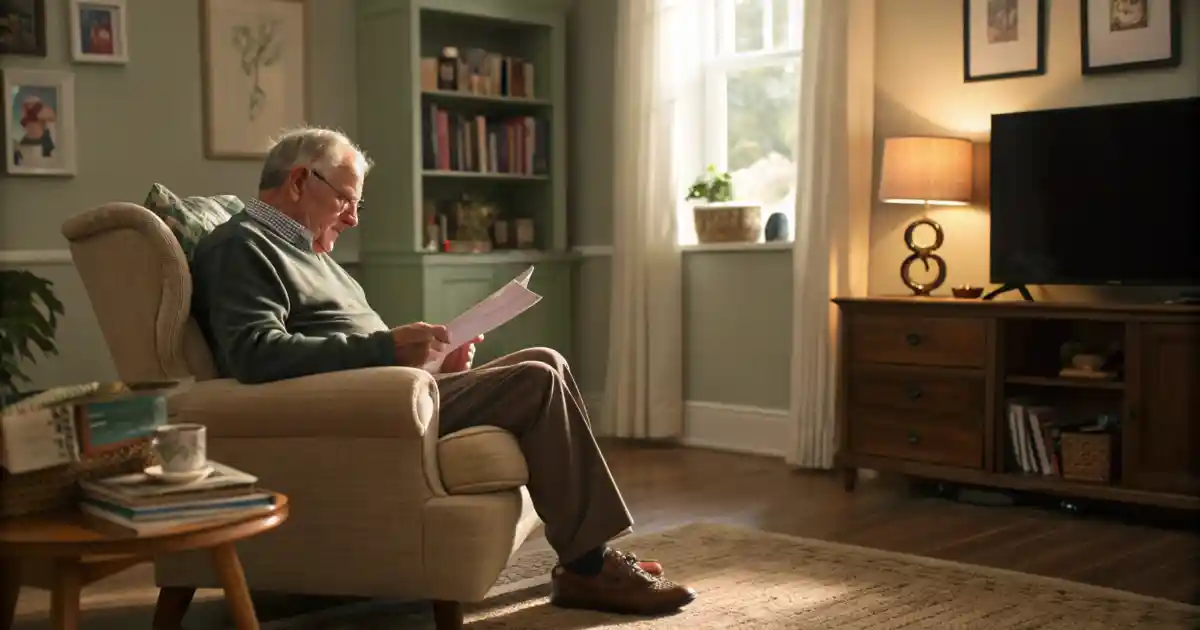Ever watched those late-night commercials selling senior life insurance as seen on TV and thought, “Wow, that sounds like a great deal”? You’re not alone. These ads are designed to make you feel exactly that way—like you’ve found a simple, affordable solution to a complex problem. But here’s the thing: when you dig into senior life insurance as seen on TV reviews, the story isn’t always so rosy.
Let’s pause for a second. Why do these ads seem so convincing? It’s not just the soothing voice of a trusted celebrity or the promise of “guaranteed acceptance.” It’s psychology at play. These commercials tap into deeply human fears: the fear of leaving loved ones burdened with debt, the fear of being forgotten, and the fear of not having a financial safety net. They wrap those fears in comforting language “No medical exam required,” “Instant peace of mind” and that’s hard to resist, especially when the clock is ticking and life feels uncertain.
The strategy is simple yet powerful. They’re not just selling a policy they’re selling an emotional rescue package. It’s a masterclass in marketing psychology, where the goal isn’t to provide the best coverage it’s to make you feel like you’re being smart, responsible, and caring by buying now.
But here’s where it gets tricky. When you look at senior life insurance as seen on TV reviews, you start to see patterns. People say things like, “I didn’t realize the policy had a two-year waiting period,” or “I thought my premiums wouldn’t increase.” These are the moments when the emotional pull of the ad fades, and the real-life consequences sink in.
Understanding this psychological framing is the first step to making a smart decision. Because let’s be honest—when you’re buying life insurance, you’re not just shopping for peace of mind. You’re shopping for financial protection that lasts, and that means looking beyond the warm glow of a TV ad and into the details that matter.
Decoding Senior Life Insurance as Seen on TV Reviews
If you’ve ever typed “senior life insurance as seen on TV reviews” into Google, you probably noticed something: the reviews are a mixed bag. Some people say, “It was easy and fast, no medical exam!” Others say, “I had no idea there were so many restrictions.” So, what’s going on here? Let’s break it down.
First, it’s important to understand that these TV policies are often what the industry calls guaranteed issue life insurance. That means they’re designed for seniors who might not qualify for traditional policies because of age or health conditions. On the surface, that sounds like a win, right? But here’s the catch: while the acceptance is easy, the fine print is often where the problems lie and that’s exactly what senior life insurance as seen on TV reviews tend to highlight.
For example, many reviewers mention waiting periods sometimes two years before the full death benefit kicks in. Others talk about premium increases that happen as they age, even though the ads don’t always make that crystal clear. And then there are complaints about low coverage limits, which may not fully cover final expenses, let alone leave anything behind for family members.
There’s also a recurring theme in these reviews: disappointment over expectations not matching reality. The ad might say “Guaranteed acceptance for ages 50 to 85,” but what it doesn’t always spell out is that the policy might not pay out in full if you pass away within the waiting period. Or that the advertised low monthly rate is based on the youngest eligible age and goes up sharply as you age.
Reading through these senior life insurance as seen on TV reviews is like peeking behind the curtain of a well-rehearsed sales pitch. It’s not that the policies are scams they’re not. But they are marketed in a way that focuses on the benefits and glosses over the limitations. That’s why it’s critical to slow down, ask questions, and read the policy details before you sign up. Because let’s be honest no one wants to find out later that their “peace of mind” came with strings attached.

Real Stories: When TV-Advertised Policies Deliver and When They Don’t
Let’s get real for a moment. You can read all the senior life insurance as seen on TV reviews in the world, but sometimes it takes hearing an actual person’s experience to truly get it.
Take Helen, for example a 72 year-old widow who signed up for a TV advertised senior life insurance policy after seeing a commercial late at night. The promise of “no medical exam, no hassle, and guaranteed acceptance” felt like the perfect solution. She signed up over the phone in minutes. At first, she was relieved until her monthly premiums started climbing year after year, and she realized the $10,000 policy wouldn’t even cover the full cost of a modest funeral in her area.
Then there’s Robert, 68, who has a history of heart issues. For him, a TV policy was a lifeline. Traditional policies turned him away, but the TV offer accepted him instantly. Robert’s peace of mind wasn’t cheap his premiums were higher than he expected but for him, the guaranteed acceptance made it worth it.
These are the kinds of stories you’ll see in senior life insurance as seen on TV reviews. They’re a mixed bag, and that’s the key takeaway: these policies can work if you understand exactly what you’re signing up for. They’re often best for seniors with health issues who can’t get traditional life insurance, or for those who simply want a small amount of coverage to help with final expenses.
But if you’re relatively healthy and looking for higher coverage or more flexible options? Many reviewers say you’d be better off elsewhere like working with an independent agent or exploring traditional term life insurance.
Here’s a pattern worth noticing: people who feel misled by TV policies often say they didn’t ask enough questions, or they didn’t fully read the policy details before signing. That’s not a criticism it’s human nature to trust a friendly face on TV. But it’s also why taking the time to dig deeper reading senior life insurance as seen on TV reviews, comparing offers, and asking the right questions can make all the difference in whether a policy truly delivers peace of mind or leaves you with regrets.
Comparing TV-Advertised Policies to Traditional Life Insurance
If you’ve been reading senior life insurance as seen on TV reviews, you’ve probably noticed a pattern: many people feel surprised or even disappointed when they compare their TV policy to what’s available through traditional insurance companies. Let’s break down the key differences so you can see why.
First up, coverage amounts. TV-advertised policies often cap at $10,000 or $25,000, sometimes even lower. That might be enough to cover funeral costs, but it likely won’t leave much for your family or outstanding debts. Traditional life insurance policies, on the other hand, can offer much higher coverage sometimes hundreds of thousands of dollars depending on your health and budget.
Next, let’s talk premiums. TV policies often advertise “affordable monthly payments,” but here’s the catch: those low rates are usually based on younger applicants say, a healthy 60-year-old. As you age, the premiums go up, and fast. Traditional policies tend to have more stable pricing, especially if you lock in a term policy early. Plus, some traditional policies offer level premiums for life, so you don’t get hit with surprise increases down the road.
Then there’s the application process. TV policies are easy just a few questions, no medical exam. That’s great if you have health conditions that make qualifying for traditional insurance tough. But that convenience often comes with trade-offs: lower coverage, higher premiums, and more restrictions. Traditional policies usually require a medical exam, but if you’re in decent health, the savings and benefits can be well worth it.
What about policy flexibility? TV-advertised policies tend to be rigid what you see is what you get. Traditional life insurance options, by contrast, often let you customize coverage amounts, add riders (like accelerated death benefits), and adjust payment schedules. That flexibility can make a big difference as your needs evolve.
Here’s the thing: there’s no one-size-fits-all answer. Senior life insurance as seen on TV reviews show that these policies are a fit for some especially those who need coverage quickly and can’t get it elsewhere. But if you’re healthy, have time to shop around, and want more options, a traditional policy could give you better value and stronger protection in the long run.

Red Flags in TV Insurance Offers
If you’ve been scrolling through senior life insurance as seen on TV reviews, you’ve probably noticed a pattern: certain red flags come up again and again. Let’s shine a light on them because let’s be honest, it’s way too easy to get swept up by a smooth-talking commercial without realizing what’s lurking in the fine print.
First up: the “guaranteed acceptance” hook. Sounds amazing, right? No medical exams, no health questions, you’re approved on the spot. But here’s what they don’t shout from the rooftops: guaranteed acceptance usually comes with a waiting period sometimes two years before your full death benefit kicks in. If something happens during that time, your beneficiaries might only get a partial payout, or in some cases, just a refund of the premiums you paid.
Another biggie: premium increases. TV ads often show a low, fixed monthly price that sounds too good to pass up. But many senior life insurance as seen on TV reviews mention a nasty surprise down the road premiums that start climbing steeply as you age. A policy that seemed affordable at 65 might feel downright painful at 75.
Coverage limits are another issue. A lot of these TV-advertised policies max out at $10,000 or $25,000. That might cover basic funeral expenses, but if you have any debts, ongoing medical costs, or loved ones relying on your income, it might fall short way short.
Then there’s the fine print nobody talks about in the commercial:
- Are there exclusions for certain health conditions?
- Are accidental deaths covered differently than natural causes?
- Are there “graded benefits” that reduce the payout in the first few years?
Finally, don’t get distracted by the celebrity spokesperson or the heartwarming stories. Sure, a familiar face might make you feel like you’re in good hands, but remember—they’re paid actors. They’re not financial advisors. And they’re definitely not looking at your unique situation.
The bottom line? If you’re considering one of these policies, stop and ask:
- What’s the waiting period?
- How do premiums change over time?
- What’s the max coverage I can get?
- Are there any hidden fees or conditions?
If the answers aren’t clear, or if the company isn’t upfront, that’s your cue to keep shopping. Your financial peace of mind is too important to gamble on a slick sales pitch.
How to Choose the Right Senior Life Insurance Policy
Let’s take a breath for a second. After reading all those senior life insurance as seen on TV reviews and let’s be honest, some of them are a bit scary—you might be wondering, “So how do I actually pick the right policy?” Great question. Let’s break it down.
First, start by asking yourself what you actually need. Is your main goal to cover funeral expenses? Leave a little cushion for your family? Pay off lingering debts? This matters because some TV-advertised policies only cover burial costs, while traditional policies (or more robust plans) might offer higher death benefits for bigger financial needs.
Next, be honest about your health. If you have serious medical issues, a guaranteed acceptance policy from TV might genuinely be your best shot at getting coverage. But if you’re in reasonably good health, a traditional life insurance policy yes, even if it requires a medical exam could give you better coverage at a lower cost over time.
It’s also crucial to think long-term. How long do you need coverage for? Some people are okay with a policy that only lasts a few years, while others want something that lasts for life. Read the fine print in any offer TV policies often have limited terms, waiting periods, and premium hikes that kick in when you least expect it.
And here’s something that gets overlooked way too often: talk to an independent insurance advisor. Not a TV spokesperson, not a celebrity on your screen, but a real person who can help you navigate your unique situation. A good advisor will:
- Compare multiple options across different companies
- Explain complicated terms in plain English
- Help you avoid policies with hidden traps
- Find a plan that matches your health, budget, and family needs
Lastly, don’t rush it. Those TV ads make it sound urgent like you need to sign up right now. But unless you’re in a time crunch due to health issues, take a beat. Read senior life insurance as seen on TV reviews, compare policies, and ask all your questions. It’s your money, your legacy, and your peace of mind on the line.
Remember: the “right” policy isn’t always the easiest one to get. It’s the one that gives you the right balance of affordability, coverage, and reliability for you.

Conclusion
So, after digging into senior life insurance as seen on TV reviews, what’s the bottom line? These policies aren’t scams, but they’re not magic solutions either. They’re tailored for a specific audience usually seniors who might not qualify for traditional coverage and they fill a niche, albeit a narrow one.
If you’re in good health and can pass a medical exam, you’ll likely get better value elsewhere. But if you’re facing health challenges, and a TV-advertised policy is your only option, it might be worth considering as long as you know what you’re signing up for.
Here’s what really matters: Don’t buy into the hype without reading the fine print. Celebrity spokespeople and emotional commercials are designed to pull at your heartstrings, not to give you all the facts. Take time to compare options, ask hard questions, and think about your unique needs because your peace of mind is worth more than a clever sales pitch.
At the end of the day, your ideal insurance plan should reflect your life, your family, and your budget not just what sounds good on TV. So do your homework, ask for expert advice, and make sure the policy you choose is the one that actually delivers on its promises.
FAQ
Are senior life insurance policies advertised on TV legitimate?
Yes, the policies are real, but they come with specific termslike lower coverage limits, potential waiting periods, and often hig her premiums than traditional life insurance options. Always read the policy details carefully before you decide.
How do senior life insurance as seen on TV reviews compare to traditional policies?
Many reviews reveal that TV-advertised policies are easier to qualify for, but they tend to be more expensive per dollar of coverage. Traditional policies often provide better long-term value if you’re healthy and can pass a medical exam.
What’s the biggest hidden risk in TV-advertised plans?
The waiting period. Many TV policies have a two-year window where only limited benefits (or even just a return of premiums) are paid out if the insured passes away. This isn’t always clear upfront.
Is a TV policy ever the best choice for seniors?
It can be especially for seniors with significant health issues who don’t qualify for traditional life insurance. If no other options are available, a TV policy may be the only way to secure some form of coverage.
What should I ask before signing up for a TV life insurance policy?
What’s the waiting period, if any?
Will my premiums increase over time?
What’s the maximum coverage available?
Are there any exclusions based on cause of death or health conditions?
How does the cost compare to other options like traditional life insurance or working with an independent agent?

